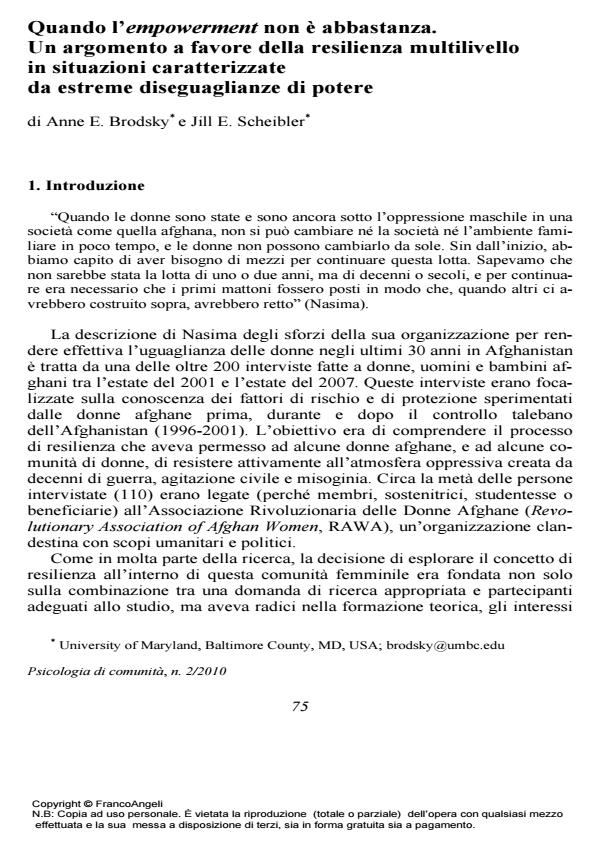When empowerment isn’t enough: An argument for multi-level resilience in the face of extreme power inequalities
Journal title PSICOLOGIA DI COMUNITA’
Author/s Anne E. Brodsky, Jill E. Scheibler
Publishing Year 2011 Issue 2010/2
Language Italian Pages 12 P. 75-86 File size 495 KB
DOI 10.3280/PSC2010-002008
DOI is like a bar code for intellectual property: to have more infomation
click here
Below, you can see the article first page
If you want to buy this article in PDF format, you can do it, following the instructions to buy download credits

FrancoAngeli is member of Publishers International Linking Association, Inc (PILA), a not-for-profit association which run the CrossRef service enabling links to and from online scholarly content.
This article explores the limitations of empowerment in the context of unremitting, dangerous, and extreme power inequalities. The context explored here is one experienced, over the past 30 years, by the members and supporters of an underground, Afghan women’s humanitarian and political organization. Although empowerment is seen as a guiding principle for community psychology, this paper argues that in settings where it is nearly impossible for a sub-community to gain resources, access, mastery and power over themselves and others, empowerment may be an unrealistic and even disillusioning goal. As an alternative, the concept of resilience is proposed, operationalized as a culturally-grounded, multi-level process leading to superior processes and outcomes in the face of unremitting odds. Multilevel resilience attends to the successes that occur despite extreme inequality. With its focus on resistance, perseverance, indigenous goals and approaches, and nested contexts of risk and protective factors, the concept of resilience also fits community psychology values and principles.
Keywords: Resilience, empowerment, women’s rights, power inequalities, risk factors, protective factor
Anne E. Brodsky, Jill E. Scheibler, Quando l’<i>empowerment</i> non è abbastanza. Un argomento a favore della resilienza multilivello in situazioni caratterizzate da estreme diseguaglianze di potere in "PSICOLOGIA DI COMUNITA’" 2/2010, pp 75-86, DOI: 10.3280/PSC2010-002008